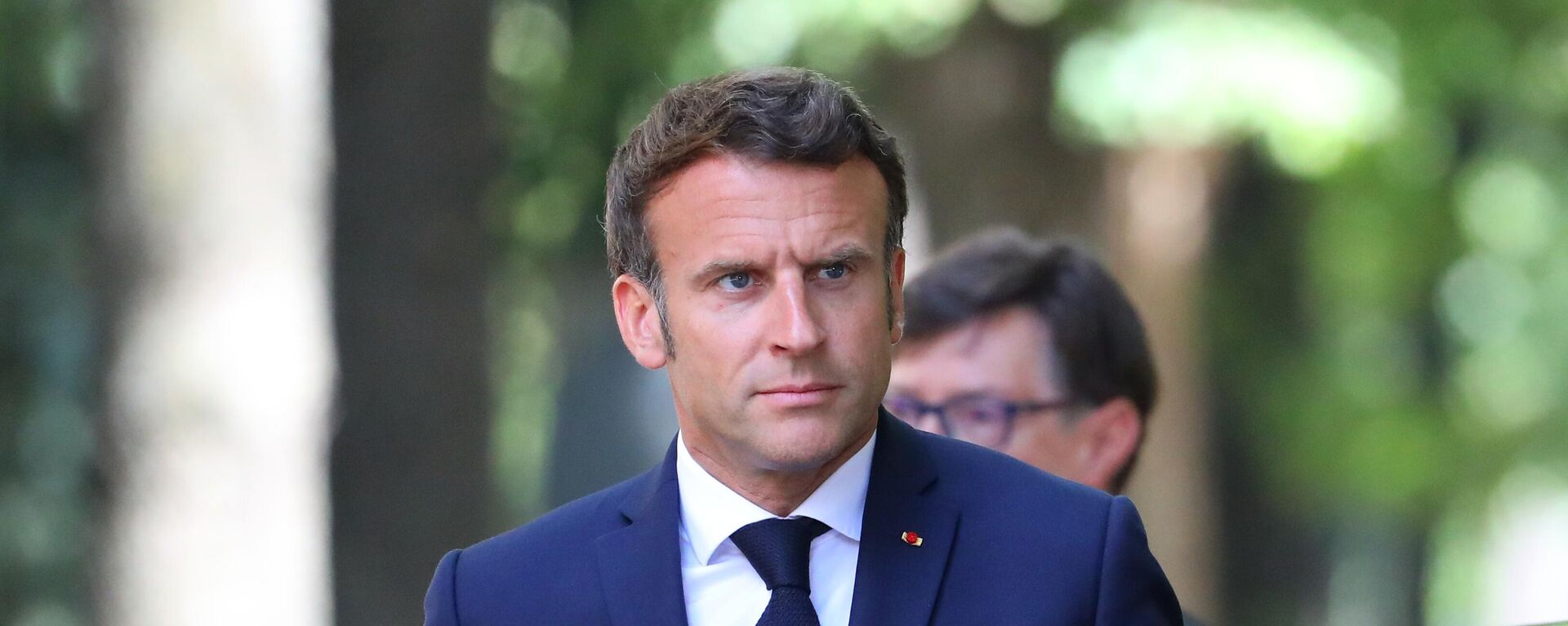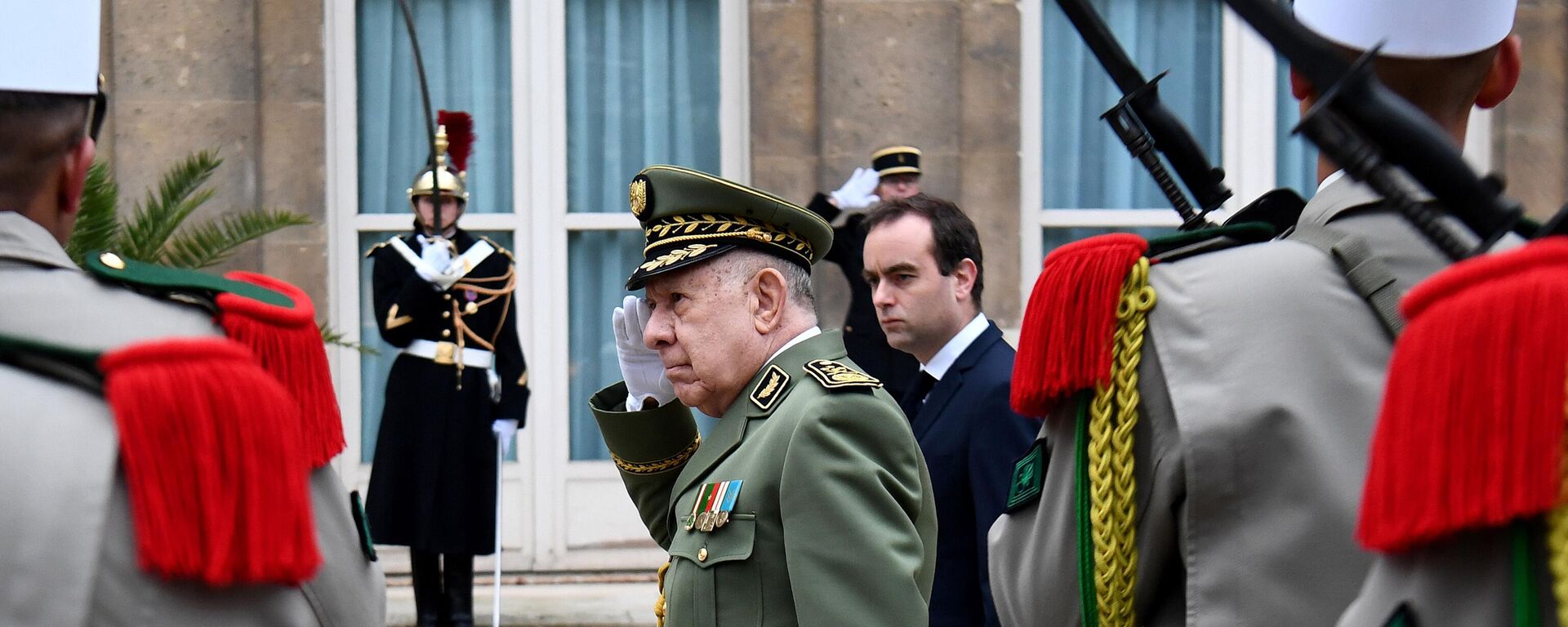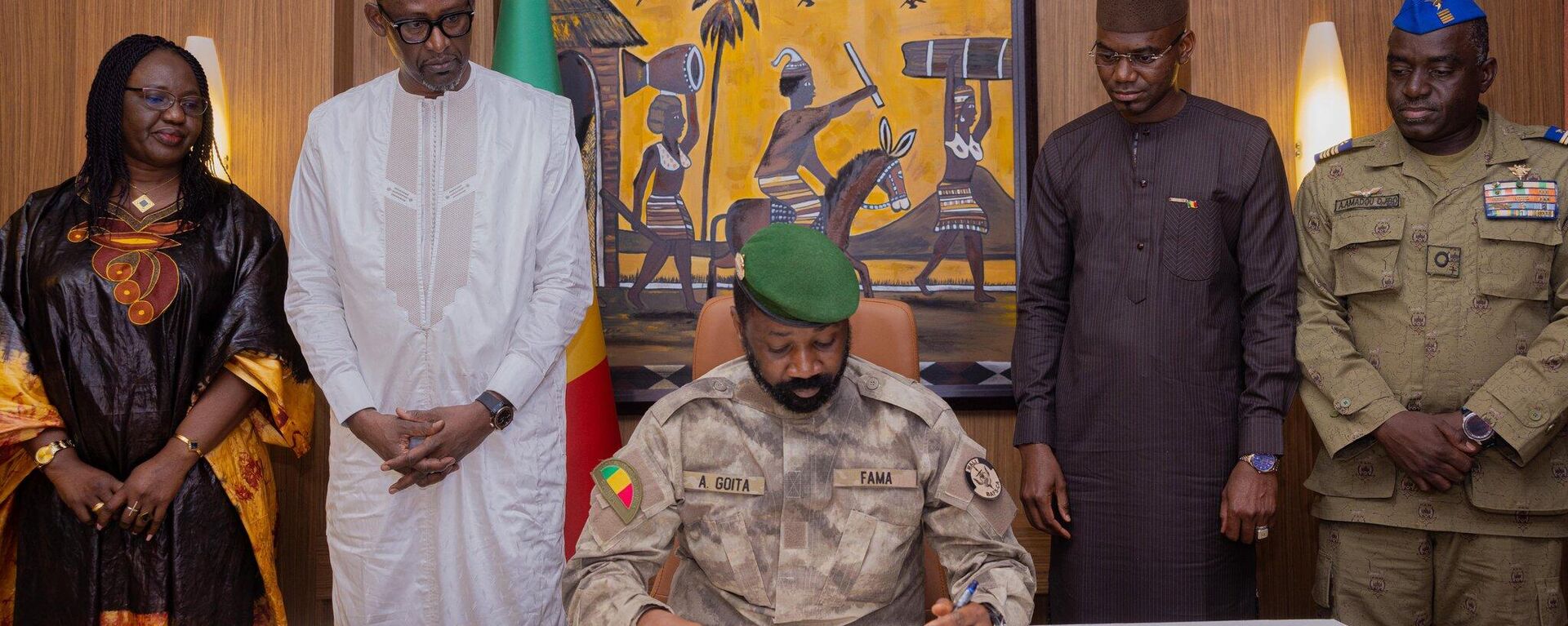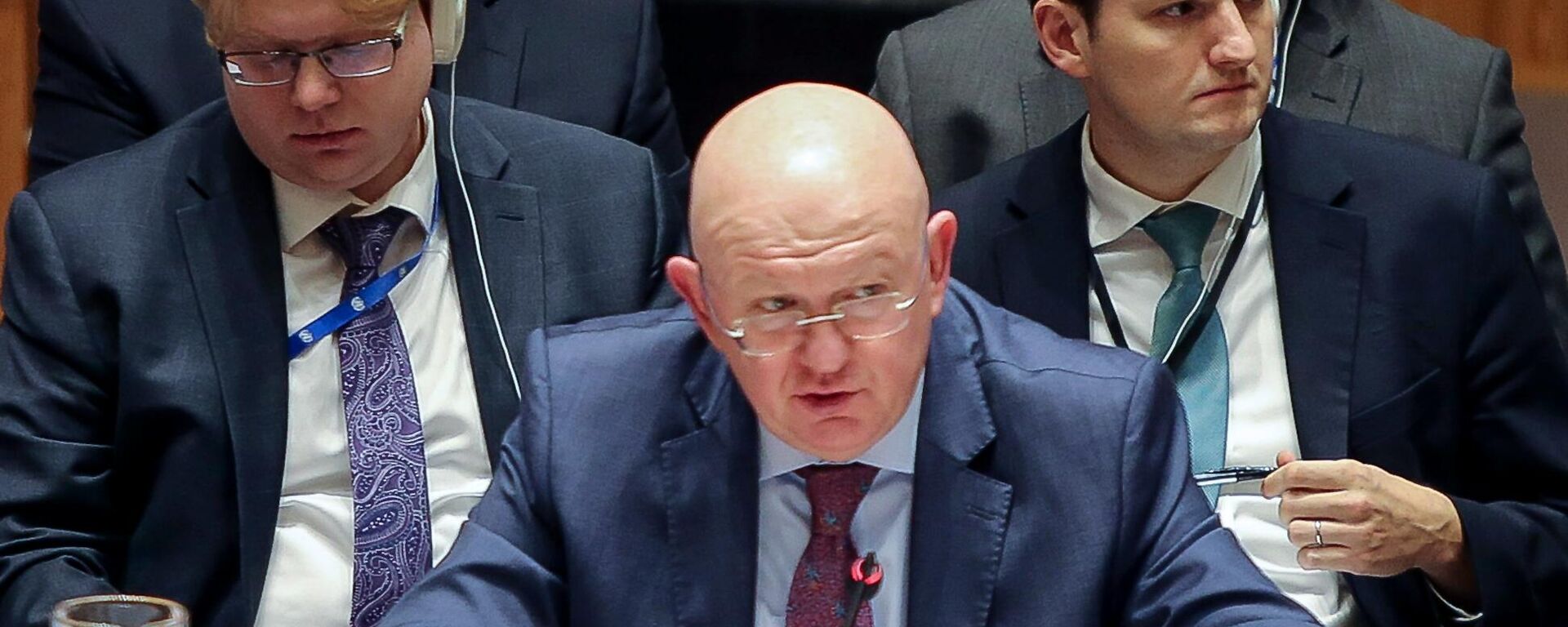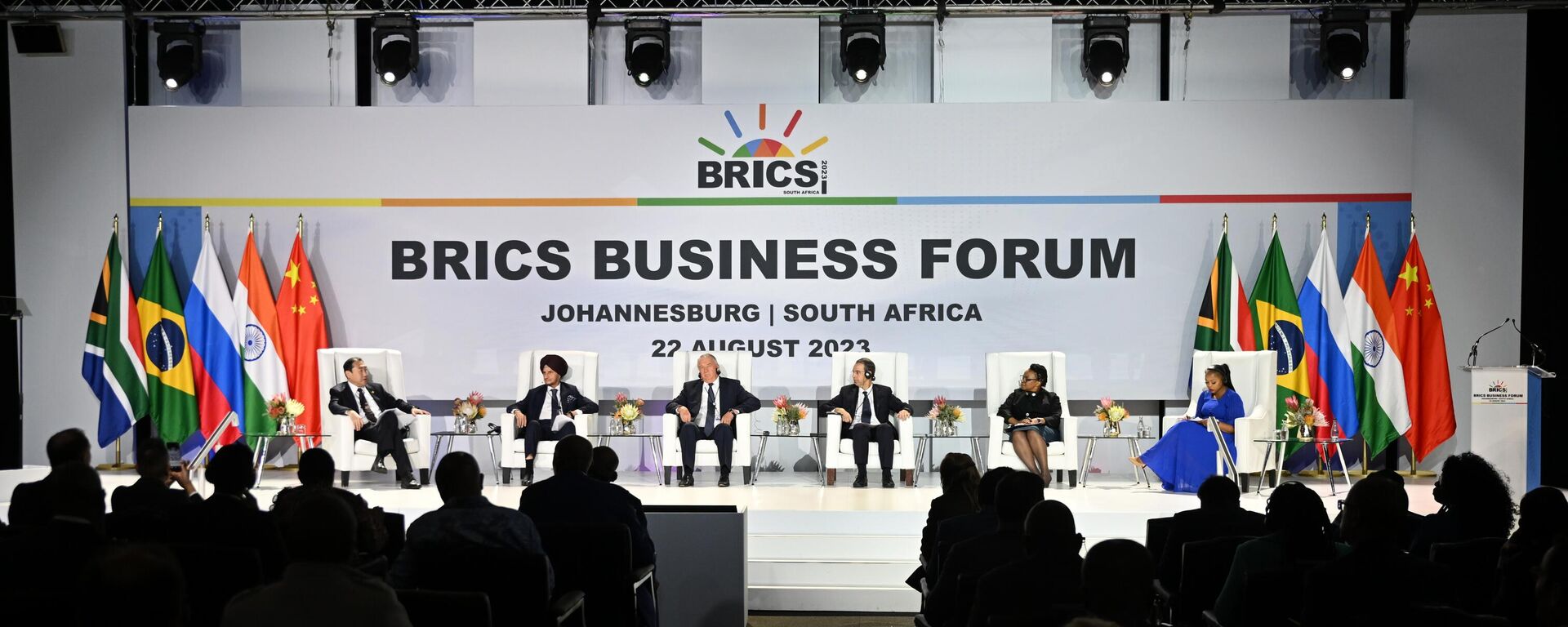France Losing Great Power Status as Africa Turns to BRICS
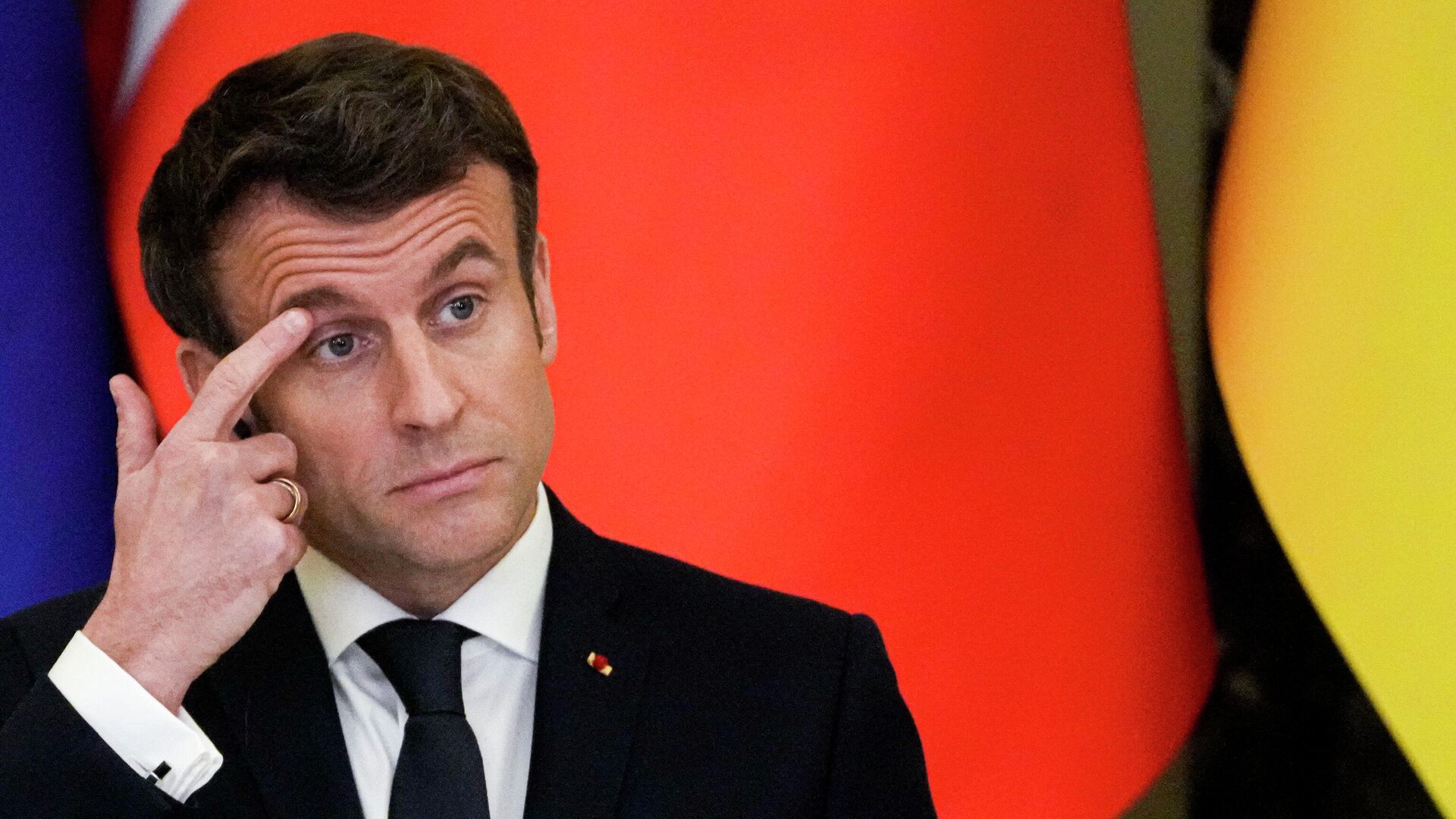
© AP Photo / Efrem Lukatsky
Subscribe
French President Emmanuel Macron is recalling the ambassador, diplomatic staff, and troops from Niger. What does Macron's political retreat mean for France's international image?
The French ambassador to Niamey, as well as all of the embassy staff, will return to France in the coming weeks and months, Emmanuel Macron announced on Sunday. He added that the French military contingent will leave Niger by the end of the year.
Following the July 26 military takeover in Niger, the nation's de facto government has demanded that French diplomats and troops leave the West African state. Nonetheless, the Elysee Palace resisted the demands, claiming that it would withdraw only if Niger’s ousted President Mohamed Bazoum requested it. However, on September 24, Macron gave up.
"France hiding behind President Bazoum has been a farce to cover up the end of the French neocolonial empire of Africa," Paolo Raffone, a strategic analyst and director of the CIPI Foundation in Brussels, told Sputnik. "The army-led events that have changed governments in many countries in the Sahel region, although each different for their domestic logic, share a common and widely supported desire to end the de facto French 'mandate.'"
How France Maintained Control Over Sahel
Even though Sahel nations were liberated in the 20th century, many of them remained controlled by their former colonizers during the Cold War era and beyond.
"To keep Soviet and Chinese out, 'Francafrique' was created with Niger and Chad as the cornerstones, with France mandated to maintain the area in the Western bloc in exchange for a continued neocolonial rule, fake democratization and development, and perpetuated exploitation of resources," Raffone explained.
Later, following NATO's intervention in Libya in 2011, which destabilized North Africa and opened the door to extremists and terrorist of all stripes, "the French and the Americans have encapsulated the region in the ‘anti-terrorism’ (anti-jihadism) logic, involving also the EU that masked the operation behind democratization, human rights and electoral processes (programs that the EU has recognized as failed)," according to the expert.
How France Lost Its Influence in Sahel
"The rigged election of Bazoum (2021), despite the official patent of democratic president, has been the last attempt to maintain the status quo," Raffone said. "On July 26, 2023, it irreversibly collapsed with no interference from foreign powers (it has been a domestic process with more than 70% of the people supporting it)."
Earlier, the French were forced to withdraw from Mali, whose government was strongly dissatisfied with the failure of France's anti-terror Operation Barkhane, and even accused Paris of assisting rebellious Tuaregs and Islamists. Likewise, citizens of Burkina Faso and Niger expressed their opposition with the presence of French troops. The French government announced the pullout from Mali in June 2021, and completed it in August 2022. Having withdrawn, Paris relocated part of its troops to Niger. At the time, Niger's President Bazoum was seen by the Elysee Palace as a loyal ally.
After Bazoum's ouster, France tried to retain control in the region by hook or by crook, threatening and snubbing the de facto government. The pro-Western Economic Community of West African States (ECOWAS) led by Nigeria even declared that it would resort to a military option to bring Bazoum back to power. In response, Mali, Burkina Faso, Niger created a military-political pact - the Alliance of Sahel States (AES), stating that they would protect Niamey from intervention.
"France alone does not have the military capacity to revert the situation in Niger or in the Sahel region," explained Raffone. "Three countries – Mali, Burkina Faso, Niger – have signed a political-military pact to keep the French out (probably more countries will join) de facto reducing the relevance of the Nigeria-centered ECOWAS. Confronted with this reality, and considering the growing discontent in the French Army, President Macron has finally decided to withdraw diplomats and military from Niger. Such a decision has been adopted, probably, in agreement with the US that will try to keep its troops in Niger while negotiating with Russia and China that, according to American analysts, are there to stay. The result is that France is out of Niger and probably the EU will soon be out of the region."
The expert noted that the historical irony is that despite the West's efforts, Russia and China are expanding their presence in Africa, while Europeans have lost their positions there. When it comes to the US, it "cannot but find some kind of minimal coexistence or abandon the continent,” according to the expert. Washington still maintains a surveillance air base in the Western African state.
What Does Loss of Niger Means for France's Prestige?
"The loss of 'Francafrique' is a serious [blow] to French prestige. Without the neocolonial dependencies in Africa, France is no more a 'power' but one of the European small nations that needs to solve the many problems of its internal cohesion and its relations with the European neighbors. It is the end of French 'exceptionalism,'" Raffone suggested.
Ian Liebenberg, political scientist and professor emeritus at the University of Namibia and Stellenbosch University in South Africa, appears to share a similar stance:
"Obviously, it will be negative in the sense that it's an indication for many on the African continent and elsewhere in the world that France's dominance over West Africa is slipping. Whether it will take a long while or a short while, no one knows," Liebenberg told Sputnik. "But indeed, I think the French image has suffered."
A member of the Niger Party of Democratic and Republican Renewal, Omar Mukhtar Al-Ansari, believes that Macron's move marks a loss for France and a victory for the Nigerien people, who had demanded the French withdrawal for two months and held multiple protesys. Speaking on Sputnik Arabic radio, he noted that "the statement of the French President that the decision to withdraw troops was caused by the supposedly unilateral desire of France is very strange, because in fact this happened due to pressure from the authorities and people of Niger."
The Nigerien politician highlighted that "Niger demands that other countries respect its sovereignty, only then one will be able to cooperate at all levels with the Niger authorities."
Could the Niger Case Trigger a Domino Effect?
Liebenberg doesn’t rule out that France's withdrawal from Niger could trigger a domino effect on the continent.
"Remember that West Africa is geographically very close to Europe and in terms of French domination, economic domination, under a new colonialist dispensation, these countries will find difficulties to move out of the economic sphere of influence," the political scientist said. "But one can be sure that they will be exploring other options and some of the things that come to mind since relations between Burkina Faso in 2016 and [France] worsened between Algeria and [France] worsened, it was known in Niger and other countries in the surroundings. It seems that these countries will look towards other options to ensure that they are less dependent on France in economic terms and also political terms."
One of the factors accelerating the process is France's economic difficulties: the nation is engulfed by inflation and is facing an economic slowdown like other countries in the Eurozone. After sliding for three months in a row, inflation in France increased sharply in August, to 4.8%, compared with 4.3% in July.
"The issue is: what does France have to offer to the African states?" Raffone asked rhetorically. Per Raffone, Senegal and the Ivory Coast's political climate could become a litmus test for France. However, if Nigeria follows Niger's suit, one could expect the whole of West Africa to change political direction away from the West, according to him.
Meanwhile, African states are considering BRICS, a group of developing nations, as an alternative in the terms of investments, political and economic support, and new business opportunities. The group, which has significantly expanded since its August summit, now accounts for a whopping 37% of global GDP and a combined population of some 3.7 billion people. BRICS 11 offers new models of cooperation, financial mechanisms based on national currencies, and special food security programs for Africa, to name but a few benefits.
"Clearly, there are some relatively welcoming feelings or warm feelings for BRICS and some of the BRICS members in West Africa, and that may be an indication already of possible future political and economic changes. At the same time, we can refer to the G20, where, the African Union, have now recently been accepted as a full member. All these might play a role. So it’s both an era in which political dynamics, economic necessities, the crisis of economy in Europe, especially France, and the issue of what economic pathways lie ahead and with whom collaboration should take place will play a role. For the moment, it looks like the pressure is set for France to withdraw from West Africa," Liebenberg underscored.

